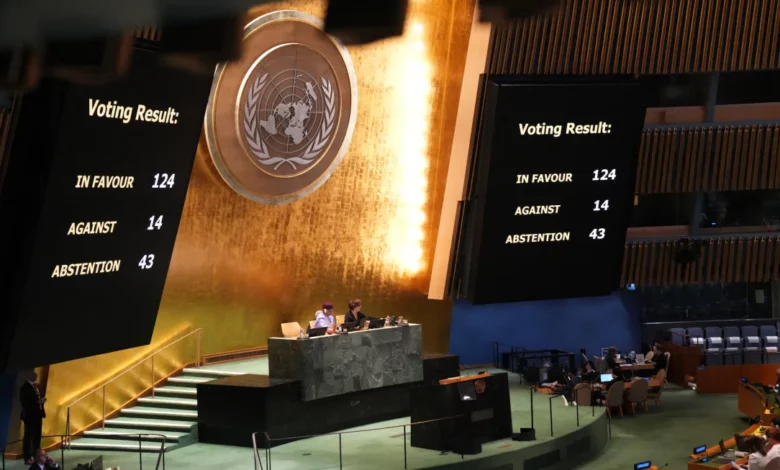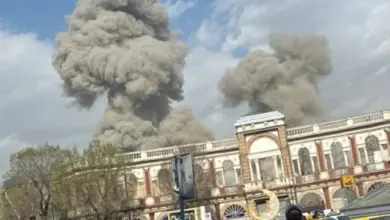
The resolution was adopted in the UN General Assembly after receiving 124 votes in favor. Fourteen countries voted against, including the United States, Hungary, Israel, Argentina, Czechia, Fiji, Malawi, Micronesia, Nauru, Palau, Papua New Guinea, Paraguay, Tonga, and Tuvalu. Forty-three nations abstained from the vote.
The vote comes after the UN’s top court, the International Court of Justice, said in July that Israel’s presence in the West Bank and East Jerusalem is illegal and called on Israel to end its decades-long occupation of territories claimed by Palestinians for a future state.
In its advisory opinion, the ICJ said Israel should end its occupation “as rapidly as possible.” The UN’s resolution gives a 12-month timeline.
Riyad Mansour, Palestinian ambassador to the UN, called the vote a turning point “in our struggle for freedom and justice.”
The resolution was put forward by observer state Palestine, which was granted new privileges – including the right to submit proposals in the assembly – in May.
Danny Danon, Israel’s ambassador to the UN, meanwhile slammed the vote outcome as “a a shameful decision that backs the Palestinian Authority’s diplomatic terrorism.”
Neither the ICJ advisory opinion nor the assembly resolution are binding, however the two decisions could further isolate Israel as world leaders prepare to meet next week in New York for the annual UN General Assembly.
Israeli Prime Minister Benjamin Netanyahu and Palestinian Authority President Mahmoud Abbas are expected to address other world leaders at the UN on September 26.
Monitoring group Human Rights Watch (HRW) welcomed Wednesday’s resolution.
“Israel should immediately heed the demand of an overwhelming majority of UN member states to abide by the World Court’s historic ruling on Israel’s decades-long occupation,” Louis Charbonneau, UN director at HRW, said in a statement.
Amnesty International also welcomed the resolution and called on Israel to abide by it.
“This resolution vindicates long-standing calls from the Palestinian people and many countries around the world, by pursuing the implementation of the ICJ’s historic advisory opinion which confirmed Israel has a legal obligation to end its unlawful occupation of the OPT and its systemic discrimination against the occupied Palestinian population,” said Amnesty secretary general Agnes Callamard said.
During the 1967 war, Israel captured the West Bank, East Jerusalem, the Gaza Strip and the Golan heights from neighboring Arab states. Soon after, it began establishing Jewish settlements in these territories.
The Palestinians want the West Bank and Gaza for a future state, with East Jerusalem as its capital. Israel considers the entirety of Jerusalem as its “eternal capital.”




